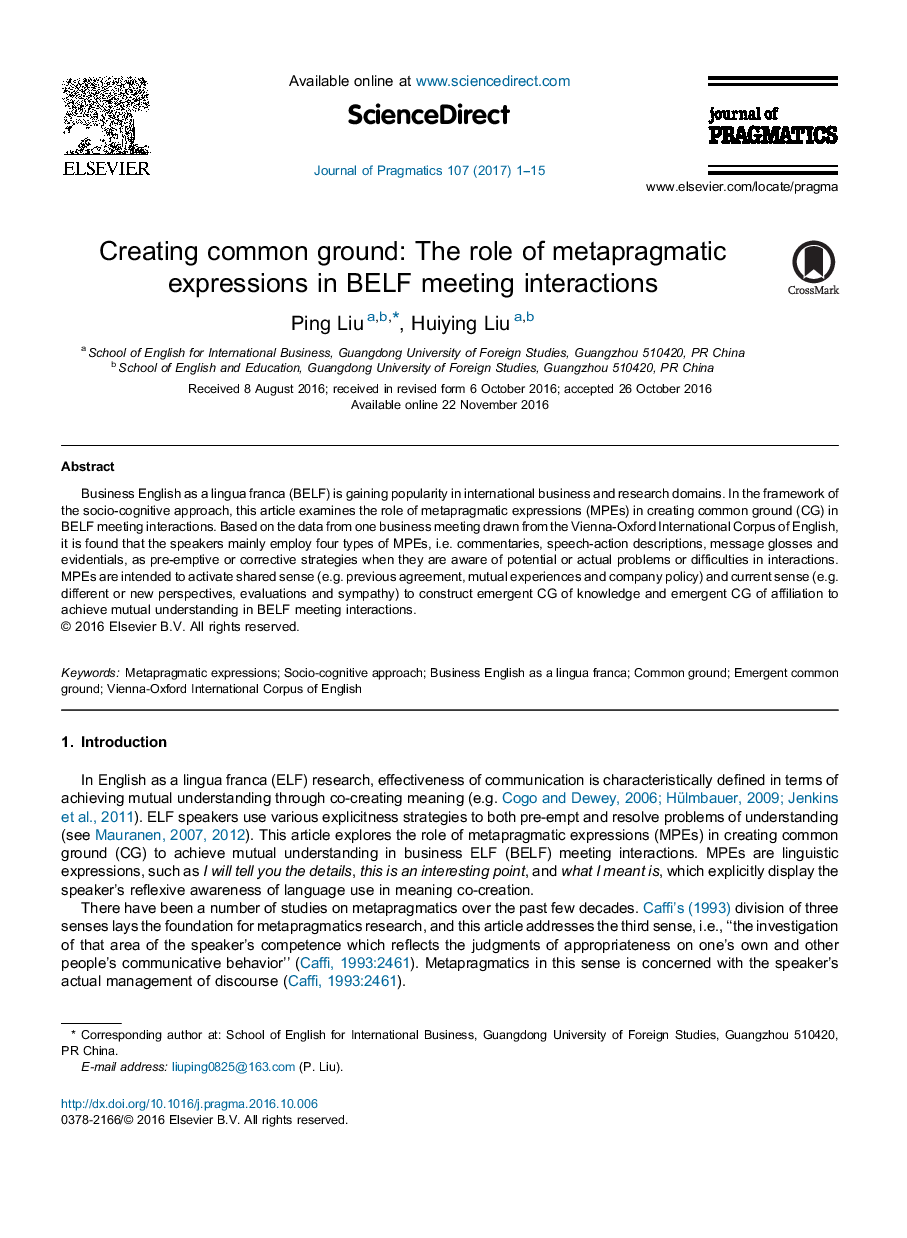| Article ID | Journal | Published Year | Pages | File Type |
|---|---|---|---|---|
| 5042782 | Journal of Pragmatics | 2017 | 15 Pages |
â¢It examines the role of metapragmatic expressions in creating common ground in BELF meeting interactions.â¢The data is drawn from the VOICE.â¢MPEs are identified as pre-emptive or corrective strategies in interactions.â¢MPEs are employed to construct emergent common ground to achieve mutual understanding.
Business English as a lingua franca (BELF) is gaining popularity in international business and research domains. In the framework of the socio-cognitive approach, this article examines the role of metapragmatic expressions (MPEs) in creating common ground (CG) in BELF meeting interactions. Based on the data from one business meeting drawn from the Vienna-Oxford International Corpus of English, it is found that the speakers mainly employ four types of MPEs, i.e. commentaries, speech-action descriptions, message glosses and evidentials, as pre-emptive or corrective strategies when they are aware of potential or actual problems or difficulties in interactions. MPEs are intended to activate shared sense (e.g. previous agreement, mutual experiences and company policy) and current sense (e.g. different or new perspectives, evaluations and sympathy) to construct emergent CG of knowledge and emergent CG of affiliation to achieve mutual understanding in BELF meeting interactions.
